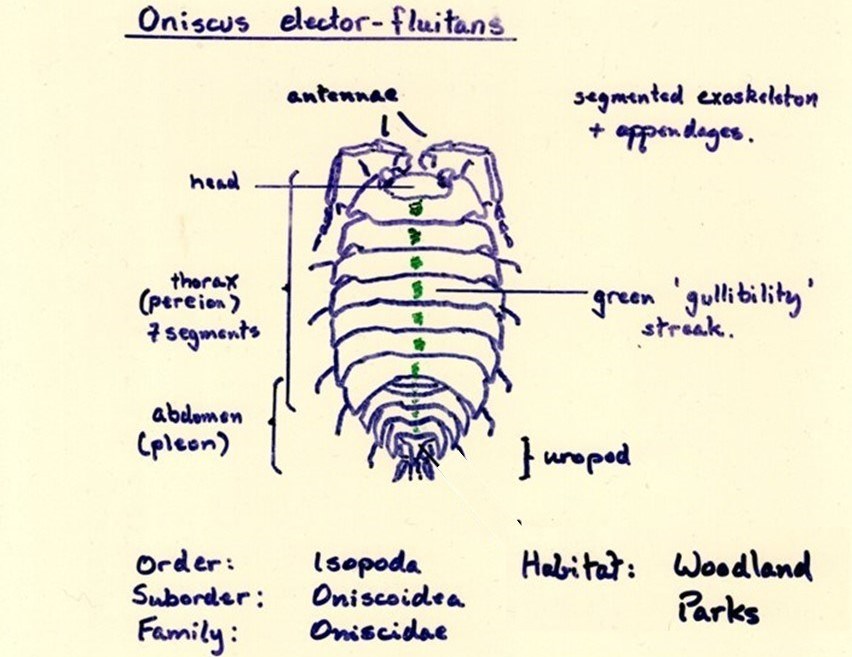
There’s been a recent flutter in wildlife circles in the Moorlands, as sightings are reported of a rare species that seems to be making a comeback. This is the woodlouse Oniscus elector-fluitans, a close relative of the Common Woodlouse (Oniscus asellus). The two look very similar but the former is easily distinguished by a green streak down its spine. Staffordshire Wildlife Trust has no records for its occurrence in the county but MCA have discovered a report
 Hygge – the Danish word that translates into something like cosiness, and the word that inspired the name of HuG for our annual green arts festival, where we work together with the Foxlowe to help raise funds for their energy efficiency schemes - originally from the idea of ‘hugging’ the building with insulation.
Hygge – the Danish word that translates into something like cosiness, and the word that inspired the name of HuG for our annual green arts festival, where we work together with the Foxlowe to help raise funds for their energy efficiency schemes - originally from the idea of ‘hugging’ the building with insulation.
The last few weeks have been significant ones for Moorlands Climate Action’s core aim of getting action on Climate in the District.
In late January, Council leader Paul Roberts agreed to take back the SMDC Climate Plan ‘Aiming Low’. The commitment was made in response to strong criticism of the plan in the council chamber – criticism which was given strength by a report produced by MCA on the eve of the meeting.
There were many points made about the plan’s weaknesses but above all these centred on the lack of clear and measured baselines and a trajectory to get to the 2030 Net Zero target.
Three and a half years after the declaration of an emergency we are still lacking a plan with numbers.
In September 1898, the Skibbereen Eagle ran what was to become one of the world’s most famous ever newspaper headlines. Concerned about the international machinations of the new(ish) Russian Tsar, the small but plucky West Cork paper declared that: “The Eagle will keep its eye on the Emperor of Russia and all such despotic enemies, whether at home or abroad.”
Historians still debate exactly how large a part this thundering Irish editorial played in the fall of the Romanoff dynasty two decades later.
Moorlands Climate Action was founded, of course, to campaign for effective action on climate change, not regime change. And we are resolutely committed to engagement as a means of pursuing our aims, not armed struggle. But against a background of disappointing action at a local level and chaos and confusion at Westminster, we continue to pursue our strategy of relentlessly pressing for action, not words.
Read more: Spotlight Autumn 2022 - Winter Palace or Winter...
 Wild Week, an ‘Eco’ event for children, schools and families, ran between 13th – 18th June, with the aim of exploring nature and having fun out of doors! It was supported by MCA’s Youth Engagement team as part of our activities to protect the environment and to help others learn about climate change.
Wild Week, an ‘Eco’ event for children, schools and families, ran between 13th – 18th June, with the aim of exploring nature and having fun out of doors! It was supported by MCA’s Youth Engagement team as part of our activities to protect the environment and to help others learn about climate change.
The programme worked alongside at least 12 local schools, some of which also linked with the Manchester University Great School Science Share, which was all about Climate Change this year. There were lots of fun things to do, such as experimenting, exploring, making things, discovering bugs, plants, wildlife and scavenger hunts.
To make it all happen, we depended on some wonderful adult volunteers who enjoyed working/playing and exploring the natural world with children in the great outdoors. We’d like to give a Big Thank You to all who helped with Moorlands Wild Week, whatever part played in the project, whether a volunteer, teacher, pupil, or behind the scenes with promotion, social media and organisation. Thank You.
 We were excited to be having a stall at the new Leek Show, not least because we weren’t entirely sure what to expect: who else would be there, would they be friends with us and how would we cope with the logistics?
We were excited to be having a stall at the new Leek Show, not least because we weren’t entirely sure what to expect: who else would be there, would they be friends with us and how would we cope with the logistics?
In the event, it was a tremendous day. The Sunday Supplement Market kindly lent us one of their gazebos and the Foxlowe two of their folding tables, so we were well set up; and in good company too, with the Farming Life Centre on one side, the RSPB on the other, the Crime Prevention Unit opposite us and SMDC and the Young Farmers just around the corner. With enough volunteers on our rota, we were able to explore, revel in all the fun of a traditional agricultural show and talk to lots of other stallholders as well as the many visitors who stopped for a chat at ours. We were particularly pleased to be visited by so many councillors and happy to congratulate Cllr Joe Porter on winning second prize in our Guess the Number of Worms in our Compost Jar competition.
The spirit of the day was well summed up by Mark Johnson in his Facebook post: “What a fantastic day of talking and laughter as half the world dropped by at MCA's stall at the Leek Show. Congratulations to the organisers for working so hard in bringing it back to life and all those who made the day such a success...”
- Hands Up for the Earth at HuG 2
- HuG 2 - Green Arts Festival 2022
- Spotlight Aug 2022 - Talking with SMDC
- HUG 2022 Moorlands Green Arts Festival
- Together We Can: Summit 11th-21st May
- Spotlight Mar- Apr 2022 - Context for an Energy Fair
- Spotlight Jan-Feb 2022 - The Great Energy Transition
- New Year 2022 - New Opportunities and New Challenges
- Moorlands Climate Action AGM
- September-October Spotlight 2021
- Totally Globally - Global Day of Action - 6th November 2021
- CAMINO to COP – A 500 Mile Walk for Climate Justice
